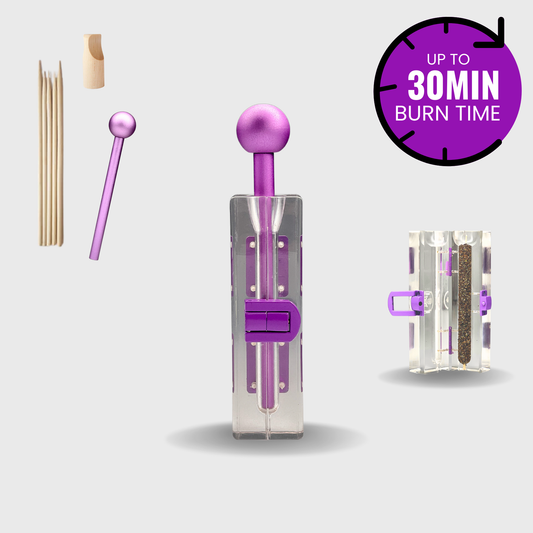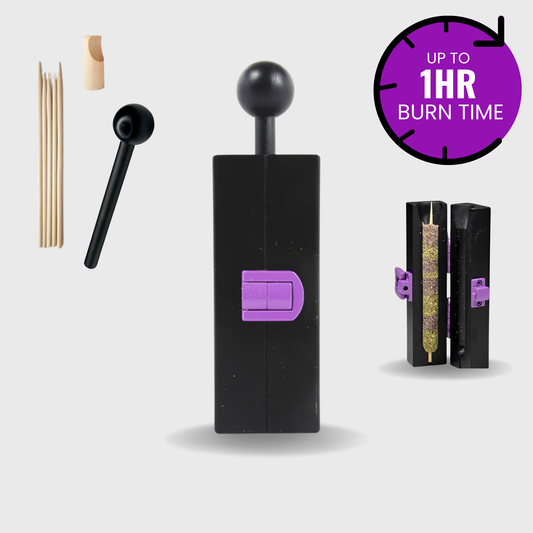- Beneficial bugs like Aphidius matricariae and ladybugs do a great job at pest control, especially for aphids, without needing to use chemicals.
- Fungal insecticides, such as Beauveria bassiana, are also natural and can infect and get rid of common cannabis pests.
- Planting certain things together, like marigolds, can help keep pests away and also help the cannabis plants stay healthy.
- One big reason for pest problems is overwatering, which brings in fungus gnats and can cause mold to grow.
- Even big cannabis farms are using natural pest control successfully by using integrated pest management (IPM) programs.
Keeping bugs away from your cannabis plants doesn’t have to mean you have to use harsh chemicals. Using natural pest control methods is becoming more liked as more growers are searching for environmentally friendly ways to protect their crops. But do these methods actually work, though? Lets look at how helpful insects, insect-killing fungi, and smart environmental management can help you grow healthier cannabis while using less pesticides.

Common Pests in Cannabis Growing
Cannabis plants can get pests whether they are grown inside or outside. Some of the most annoying ones are:
Aphids (Rice root aphids & cannabis aphids)
Aphids are some of the worst pests for cannabis. These little bugs suck the sap out of plants, which makes them weak, and they can also spread plant diseases. They reproduce really fast, and since they have live babies instead of eggs, things can get bad quickly. Cannabis aphids often group together on stems and leaves, taking out important nutrients and leaving behind a sticky stuff called honeydew, and this can cause mold to grow.
Spider Mites (Red spider mites & two-spotted mites)
Spider mites love warm, dry places and are known for hurting cannabis plants. These tiny pests eat the green parts of the plant, making yellow or brown spots called “stippling” on the leaves. If you don't deal with them, spider mites can make plants so weak they might die. Also, they make thin webs over the areas they are on, which is a sign that things are getting pretty serious.
Fungus Gnats
Fungus gnat babies are a big problem for cannabis roots. They grow in soil that’s too wet, eating dead stuff and root tissue. If there are a lot of them, it can cause root rot, make plants not grow right, and even kill them. Adult fungus gnats are more just annoying, but if you see them, it means there are likely babies damaging the roots below.
Because these pests multiply fast, finding them early and using biological control is really important for keeping a healthy growing area.

Why Go with Natural Pest Control Instead of Chemical Pesticides?
Using chemical pesticides might seem like a fast fix, but there are some problems with them:
-
They can be bad for people and the environment – Chemicals from pesticides can stay on the cannabis flower, which is a worry for people who smoke or eat cannabis.
-
Rules and limits – Many places have strict rules about how much chemical pesticide can be in cannabis products, making it hard to follow the rules.
- Pests can become resistant – If you use chemical treatments too much, pests can become resistant to them, so they don’t work as well over time.
Natural pest control methods are a safer, more sustainable option that keeps plants and the environment in better balance.

Beneficial Insects for Cannabis Pest Control
One of the best ways to control pests without chemicals is by using helpful insects. These natural predators keep pest numbers down while keeping things balanced in nature.
Parasitic Wasps (Aphidius matricariae)
- These tiny wasps are natural enemies of aphids. They lay their eggs inside the aphids.
- Then, when the baby wasps hatch, they eat the aphid from the inside out, killing it.
- Parasitic wasps are often used in big cannabis growing operations because they help control pests for a long time.
Ladybugs & Lacewings
- Ladybugs and green lacewings are really good at getting rid of aphids and other soft bugs.
- Ladybug babies eat pests very quickly, making them great for aphid problems.
- While both of these bugs are very helpful, you might need to add them to your grow area regularly to keep them working well.

The Role of Insecticidal Fungi & Organic Sprays
Biological insecticides and organic botanical sprays offer additional non-toxic solutions for pest management.
Beauveria bassiana
- This is a fungus that occurs naturally and infects bugs like aphids, thrips, whiteflies, and spider mites.
- The fungus spores stick to the bug’s body, get inside its shell, and grow inside the bug, eventually killing it.
- Unlike chemical sprays, Beauveria bassiana doesn’t hurt helpful insects if you use it carefully.
Neem Oil & Essential Oils
- Neem oil comes from the neem tree and works as both something that pests don’t like and something that stops them from growing right.
- It messes up bug reproduction and eating habits, making it a really popular organic pest control choice.
- Essential oils like peppermint, eucalyptus, and rosemary can keep certain pests away and also help prevent fungus problems.

Ways to Prevent Pests Naturally
The best way to deal with pests is to stop them from getting there in the first place to make sure you have healthy cannabis. Here are some important things you can do to prevent pests:
-
Check plants every day – Look under leaves and on stems regularly to see if you can spot pests early on.
-
Plant things together – Some plants, like marigolds, basil, and chives, naturally keep pests away when you grow them near cannabis.
-
Keep things clean – Keep your growing area clean and organized, and get rid of dead plant stuff that can hide pests.
- Control moisture – Don’t overwater and make sure there’s good air flow to prevent fungus problems and get rid of places where fungus gnats can breed.

Growing Without Soil & How It Helps with Pests
Growing cannabis using hydroponics or things other than soil (like rockwool) can really make plants less likely to get pests.
-
Fewer pests from soil – Bugs that live in soil, like fungus gnats, lose their breeding place.
-
Better moisture control – Growing without soil gives better air flow, which reduces fungus growth and root rot.
- Healthier plant growth – Giving nutrients in a controlled way makes plant immune systems stronger, so they are better at fighting off pests.

Seasonal Pest Management Strategies
Pests act differently during the year, so growers need to change their prevention plans depending on the season.
-
Late summer spider mites – These pests are at their worst when it’s hot, so putting out predatory mites (Phytoseiulus persimilis) early can stop infestations.
-
Winter aphid prevention – Since aphids can reproduce inside all year, putting out Aphidius matricariae sometimes makes sure there’s always protection.
- Humidity & air flow changes – High humidity makes mold and fungal diseases more likely, so changing airflow and dehumidifier settings is important.

Scaling Natural Pest Control for Big Growing Operations
Big cannabis farms are increasingly using Integrated Pest Management (IPM) plans, which combine different enviromentally friendly pest control methods.
-
Using an IPM way – Combining helpful insects, insect-killing fungi, and enviromental controls makes sure pest management is thorough.
-
Training staff to spot problems early – Workers should check plants every day, looking for early signs before things get out of hand.
- Working with bug suppliers – Commercial growers often set up regular deliveries of helpful insects to make sure there’s always a good number of predators and parasitoids.

The Future of Natural Pest Control in Cannabis Cultivation
As the cannabis industry moves toward sustainability, natural pest control is becoming the preferred approach for eco-conscious growers. Advances in biological control technology, pest monitoring tools, and plant-based insecticides continue to improve pest management efficiency.
Natural pest control methods are proving their value—not only in keeping crops safe but also in improving overall plant health. For growers looking for a more sustainable, chemical-free approach, nature itself provides the best line of defense.
Citations
- Zhang, Y., & Zhang, C. (2019). Biological control: A sustainable approach for pest management in agriculture. Environmental Science Journal, 12(3), 145-157.
- van Lenteren, J. C., & Bueno, V. H. P. (2021). Augmentative biological control: Looking back and forth. BioControl, 66(2), 159-183.
- Quarles, W. (2018). Neem oil as an alternative to synthetic pesticides in pest management. Journal of Organic Agriculture, 9(4), 267-282.
- Stein, J. A., & Wu, P. H. (2020). Fungal bio-pesticides in modern pest management: The case of Beauveria bassiana. Mycological Research, 115(1), 89-102.




